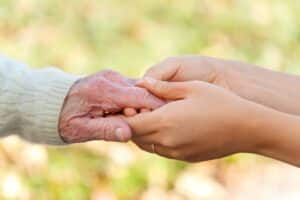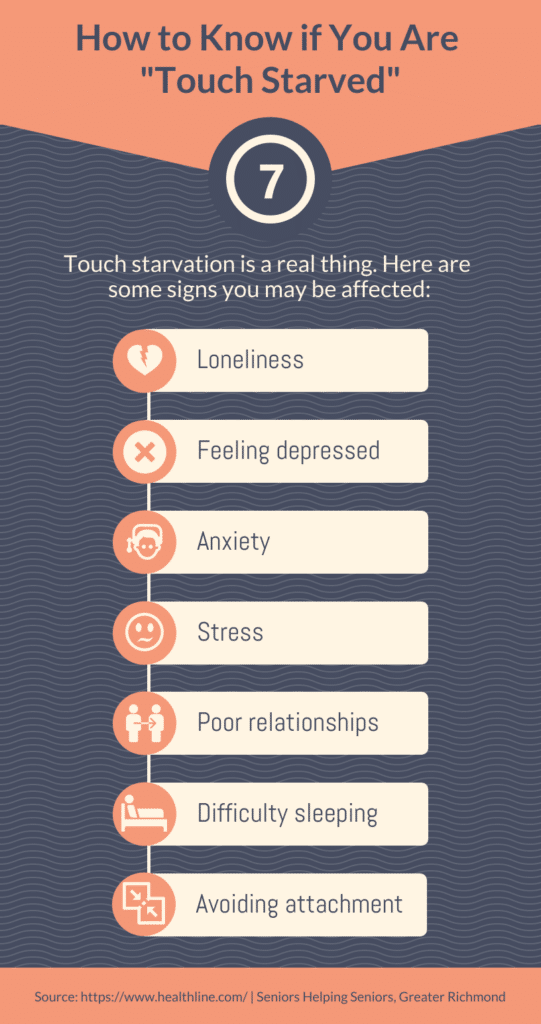 Physical touch. Those words mean many things to many people. Some of us love to hug, while many introverts recoil at the thought. Regardless of your initial reaction to being touched, many overlook the importance of this basic human function. Let’s unpack the importance of physical touch for both physical and mental health.
Physical touch. Those words mean many things to many people. Some of us love to hug, while many introverts recoil at the thought. Regardless of your initial reaction to being touched, many overlook the importance of this basic human function. Let’s unpack the importance of physical touch for both physical and mental health.
What kind of touch do we mean? Is this an intimacy thing? While that is one aspect, this kind of physical touch is more far reaching. Even the simplest act of reaching out and touching someone on the arm or shoulder counts here. Other examples include hugs, pats on the back, or holding hands. Any kind of positive, encouraging physical encounter makes the list.
Physical Touch and Mental Health
When you have positive physical contact with someone, your body produces something called oxytocin, also known as the “feel good” hormone. Additionally, you increase your levels of dopamine and serotonin, which help regulate your mood and reduce anxiety. Some of the benefits of this kind of touch include:
- stress management
- less anxiety
- reduced rate of depression
- combating loneliness and isolation
- expanding trust
- inspiring positive thinking
Since seniors are more prone to many of these mental health challenges, it’s even more important to make sure they “reach out and touch someone” (thanks, old phone company commercial).
Touch Starvation
We’ve shown that humans need physical contact for their mental health, so what happens when they don’t get enough? The resulting condition is called “touch starvation” and is a real thing! In fact, the COVID-19 pandemic and its resulting isolation has brought more attention to this issue. Particularly in the case of those who live alone or in care facilities, being cut off from people has had a huge effect. Yes, it helps to video chat and employ other survival techniques, but all the virtual gatherings in the world can’t fill the void left by touch starvation.
If your senior loved one has been isolated and you notice the following symptoms, they may be starved for touch:
- loneliness
- feeling depressed
- anxiety
- stress
- low satisfaction in relationships
- difficulty sleeping
- avoiding attachments
Effects on Physical Health
Since our physical health is so closely tied to our mental health, it stands to reason that touch has physical benefits, as well. When your body releases those hormones mentioned above, helping to reduce stress and anxiety, the rest of your body has positive effects. First, your immune system gets a boost. Next, your heart rate slows and blood pressure goes down. Improvement in mood also makes it more likely for you to seek physical activity, which we know has a huge effect on your health.
So let’s do a quick rundown of the benefits of physical touch:
- stress management
- less anxiety
- reduced rate of depression
- combat loneliness and isolation
- expand trust
- inspire positive thinking
- immune system boost
- lower heart rate
- lower blood pressure
- higher rate of physical activity
Now that more people have had the COVID vaccine, the CDC has reduced its recommendations for staying away from one another. With that in mind, go find your favorite senior and share a hug or pat on the back. It will do you both so much good!



